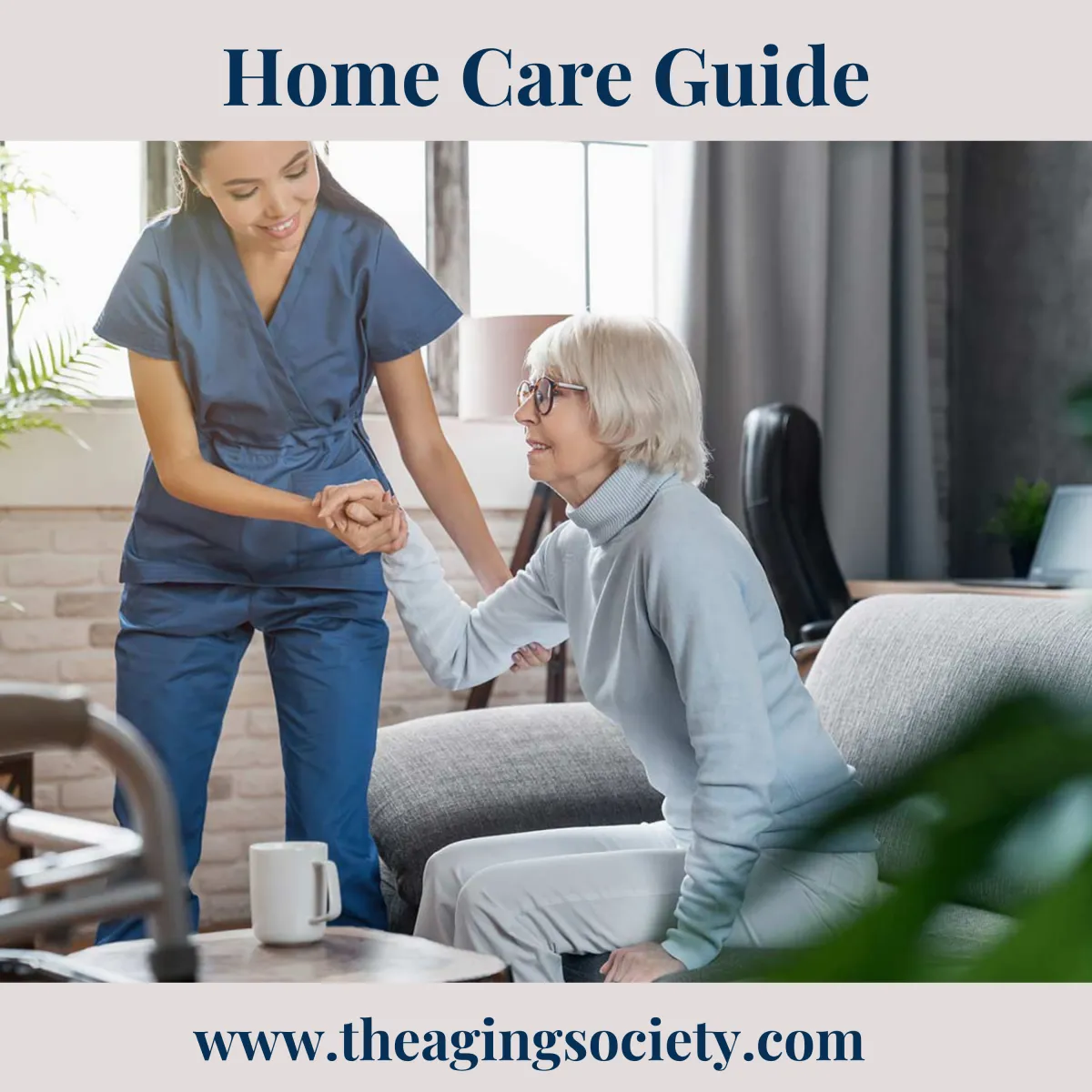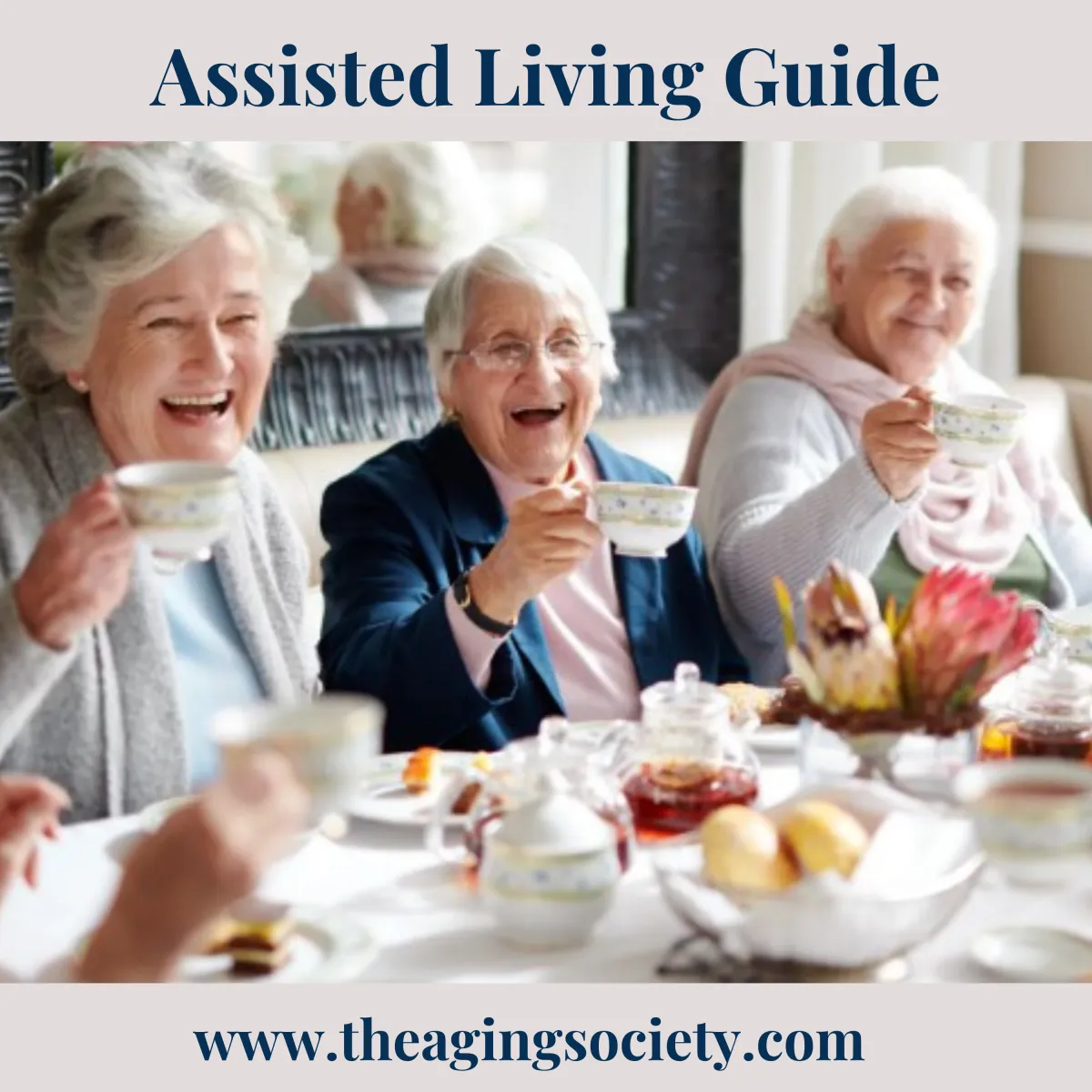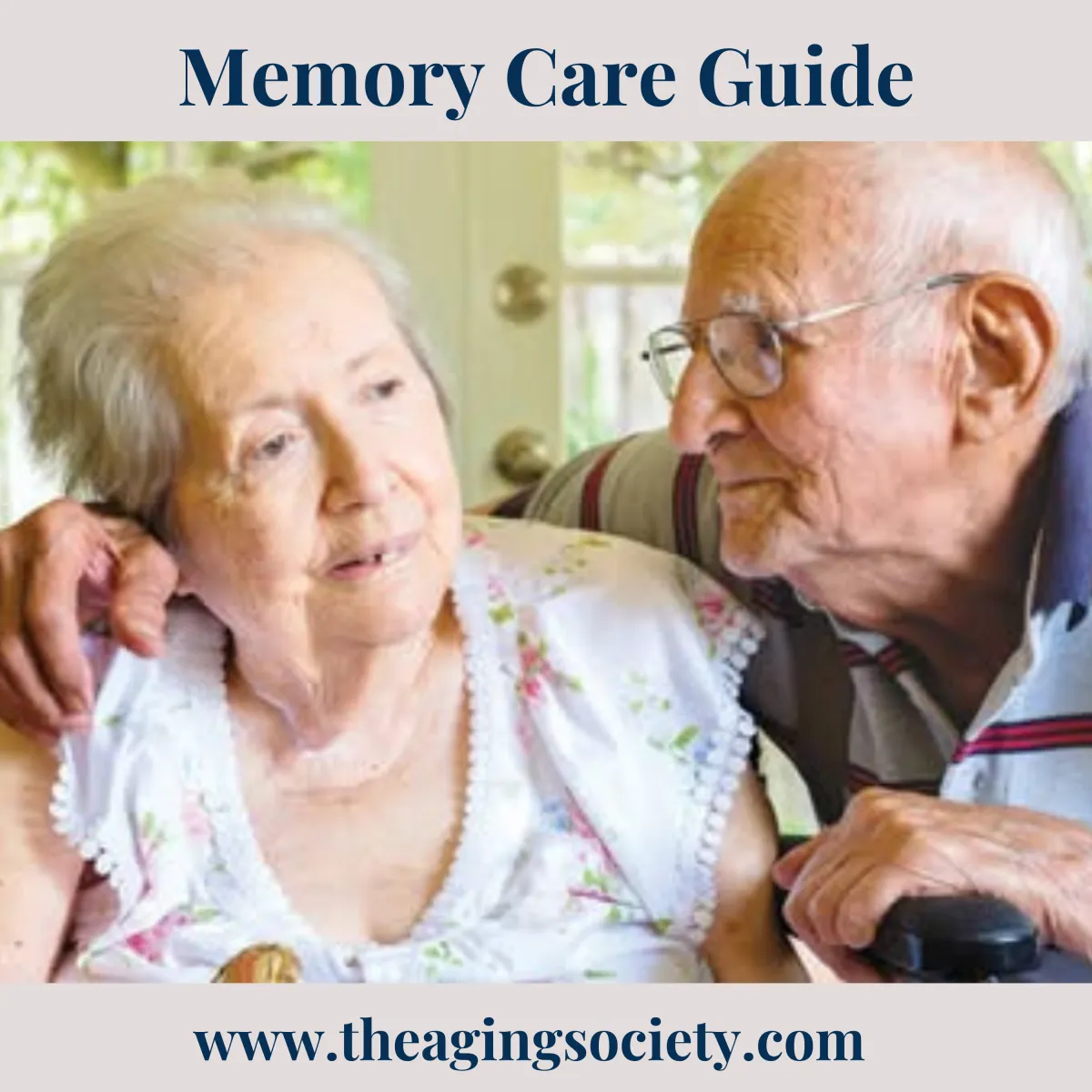Honest Support For The
Caregiver Who’s Had Enough
Because You Care Deeply
You didn’t ask for this. You just kept stepping in because no one else would.
Now the group chat is quiet. The siblings are "busy." And you're the one doing it all.
You love your parent. But you're tired. Frustrated. Burned out.
And underneath it all, you’re wondering: Why does this always fall to me?
You’re not a bad daughter. Or a selfish son. You’re a human being who’s had to carry too much,
for too long, without enough help. This space is for you.
It Shouldn’t Take A Breakdown
To Get Support
You’ve probably been holding your breath, waiting for someone else to step in. Waiting for relief that never comes.
You don’t need another article telling you to “set boundaries.” You need:
Real talk about resentment, burnout, and sibling silence
Simple tools that make things easier right now
Ways to ask for help that don’t end in conflict
That’s what you’ll find here. No judgment. No lectures. Just help.
What You'll Find Here
📈 Straightforward Blog Posts Stories, and strategies for caregivers who’ve had to do too much, too often, without enough backup.
🏋️ Burnout Relief Tools Boundaries, scripts, and energy-saving solutions that meet you in survival mode.
🚫 Products That Don’t Add to Your Plate Only the kind of support that actually lightens the load. No fluff. No extras. Just relief.
Start With Something Small:
One Small Shift
You Don’t Have to Do Everything. Just One Thing Today.
A small, kind daily reminder that you’re not alone, and you don’t have to figure it all out at once.
This wasn’t the role you expected. Some days, you’re overwhelmed. Other days, you’re just trying to make it to bedtime. You don’t need pressure. You need something simple, doable, and kind.
That’s what One Small Shift gives you:
📧 One short daily email that takes under two minutes
💬 A story, insight, or mindset shift from someone who gets it
🛠 One small action to help you feel a little less alone and a little more capable
It’s free. It’s simple. And it’s here for you, not the version of you who’s “got it all together.”
🔓 You’ll also get access to helpful tools, like:
✅The Caregiver Starter Kit
✅Mistakes to Avoid When Choosing Care
✅Senior Living Tour Checklist
✅Clarity Checklist: What Your Parent Really Needs
✅40+ Trusted Resources Directory
You don’t have to do this all, just one small shift at a time.
You Shouldn’t Have to Earn Rest
It’s okay to feel angry. It’s okay to want things to be easier. It’s okay to say: This is too much.
Because it is. And here, you’ll find help that meets you exactly in that place
Talk With Purpose
31 Days of Scripts & Strategies For Families Navigating Senior Living Options
For when you don’t know what to say, but you’re the one they expect to say it.
If you ever feel like caregiving responsibilities landed in your lap without a choice…and now you’re the one who’s supposed to keep the peace, start the talks, and figure it all out, this guide is for you.
Talk With Purpose gives you 31 gentle, ready-to-use scripts to help with:
✅Talking to a parent who avoids serious topics
✅Asking siblings for help (without starting a fight)
✅Bringing up care needs without sounding pushy or cold
✅Saying what you mean without guilt or regret
Each page includes:
✅A real-life Scenario
✅An exact Script
✅A short Strategy Tip
✅A simple Reflection Prompt to help you process what happened
You don’t have to read it all. You don’t have to get it perfect. You just need a place to start that feels safe and supportive.
This guide helps you take the next step, without feeling like it’s all on you.
If The Next Conversation Is About
“What Comes Next”…
You don’t have to have all the answers. You’ve started talking. You’ve opened the door. And if part of you is wondering:
“What are the actual care options out there?”
“How do I even begin to talk about them?”
That’s where the Senior Living Guides can help. Each guide focuses on one type of care, Home Care, Independent Living, Assisted Living, or Memory Care, so you’re not wading through information that doesn’t apply to your family right now.
They’re simple, clear, and built for caregivers who are just starting to explore what’s out there, no pressure, no jargon. You don’t have to figure everything out today. You just need a little clarity for the next step.

Not ready for a big move? This guide walks you through what quality home care looks like, how to choose the right help, and how to protect your parent’s safety and independence.

Wondering if your parent just needs a little community and support, but not full-time care? This guide helps you evaluate independent living options, including key questions and red flags.

From bathing and meals to meds and mobility, this guide helps you know when assisted living might be the right step, how to tour facilities, and how to make the decision with less guilt and more confidence.

When memory loss is affecting safety or personality, this guide helps you understand what memory care really means, and how to make a thoughtful plan rooted in love and reality.
Support for When You’re Done Doing It Alone
One Small Story
These posts are for the caregivers who never planned on doing it all, but did.
Inside, you’ll find honest guidance, emotional relief, and tools to cope with burnout, silence, and resentment.
No sugarcoating. Just real help for when you’re holding everything and wondering how long you can keep going.

Caring for Elderly Parents: Tools, Tips, and Emotional Support for Families
As our parents age, their needs change, and so must our roles. Caring for aging parents is a journey filled with love, responsibility, and sometimes, tough choices. Whether you're stepping into a caregiving role or planning ahead, this guide offers support and solutions for the challenges ahead.
Understanding the Needs of Aging Parents
Every aging parent is unique. Some may be active and independent well into their 80s, while others may face health challenges earlier. Common needs include assistance with mobility, medication management, and emotional support. Understanding these evolving requirements is the first step to providing meaningful care.
How to Talk with Aging Parents About Care
Starting the conversation early is vital. Approach with empathy and patience. Instead of telling them what they "need," ask how they're feeling about their independence and future. Use open-ended questions like, "What worries you most about getting older?" This keeps the dialogue respectful and productive.
Aging Parents: Planning Ahead
Proactive planning can prevent crises later. Begin by discussing:
Living arrangements: Will they stay at home, move in with family, or consider assisted living?
Healthcare directives: Ensure they have advance directives, a living will, and a power of attorney.
Financial planning: Work with a financial advisor to understand their resources and benefits.
Creating a plan together empowers your parents and gives the family peace of mind.
Balancing Caregiving with Other Responsibilities
Many adult children are part of the "sandwich generation" caring for kids and parents at once. Set boundaries to avoid burnout:
Prioritize self-care
Delegate tasks among siblings or hire help
Communicate openly with your family
It's not selfish to protect your well-being; it ensures you're a better caregiver.
Home Safety and Health for Elderly Parents
Ensure their environment supports aging in place. Key changes include:
Installing grab bars in bathrooms
Removing trip hazards like rugs
Adding brighter lighting
Regular checkups and medication reviews are equally important. Consider telehealth for added convenience.
Emotional Support for Aging Parents
Aging often brings loneliness and loss. Be present, listen more, and validate their feelings. Encourage social connections through:
Community centers
Faith-based groups
Senior activity clubs
Even simple gestures like a daily phone call can uplift their spirits.
Caregiver Anecdote: A Daughter's Promise
"When Mom's memory started fading, I promised her she wouldn't face it alone. Every morning, I play her favorite 60s music while we sip tea. It grounds us both. It’s not just about tasks, it’s about love."
— Joan, caregiver from Ohio
Frequently Asked Questions
How do I know when my aging parent needs more help?
Look for signs like missed medications, unpaid bills, or mobility issues. Behavioral changes may also indicate underlying concerns.
What if my parent refuses help?
Respect their autonomy while expressing your concerns. Sometimes, involving a trusted doctor or counselor can help bridge the gap.
Are there government resources for elder care?
Yes, programs like Medicare, Medicaid, and local Area Agencies on Aging provide various supports. Visit Eldercare.gov for more information.
How do I manage caregiver stress?
Join a support group, take regular breaks, and consider therapy. You're not alone sharing helps lighten the emotional load.
Conclusion: Honoring the Journey
Caring for aging parents is not just about chores and schedules. It's about honoring a lifetime of love and building new memories together. Stay compassionate, stay informed, and know that help is always within reach.
One Small Moment
From One Caregiver to Another
A note in your inbox when you need it most.
This isn’t another caregiving checklist. It’s a gentle, supportive note, from someone who understands how heavy this can feel. Sign up to receive thoughtful encouragement, small reminders, and helpful tools (only when they’re actually helpful).
Join the newsletter with 2000+ Caregivers like you who trust The Aging Society for emotional clarity, practical support, and honest conversation.
You show up for everyone else. Let this newsletter show up for you!
From Other Caregivers Who’ve Had Enough
Tired of being the only one who steps up? This hub offers real talk, practical relief, and burnout tools for caregivers who feel abandoned by family and exhausted from doing it all alone.
“I didn’t think I was allowed to be angry — until I realized I was burned out. The honesty here made me feel less ashamed and more supported.”
“This was the first time I felt like someone understood what it’s like to be the only one left holding everything.”
“Everyone says to ‘just ask for help,’ but no one talks about what to do when nobody shows up. This page helped me figure out how to cope without waiting anymore.”
“I didn’t need inspiration — I needed backup. And that’s what this felt like.”
“What helped most was knowing I wasn’t the only one angry, exhausted, and still doing everything out of love. This space made me feel less alone.”
© 2025 The Aging Society. All rights reserved.
For families navigating senior care, find clarity, compassionate support, and trusted resources for senior care.
It all starts with One Small Shift.
